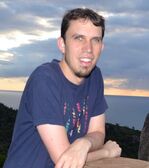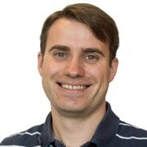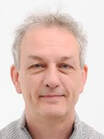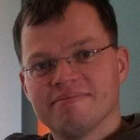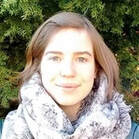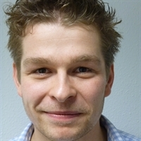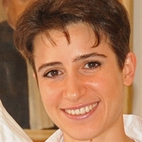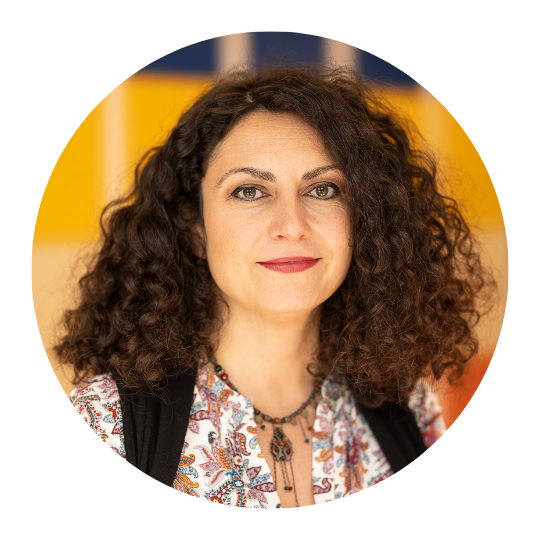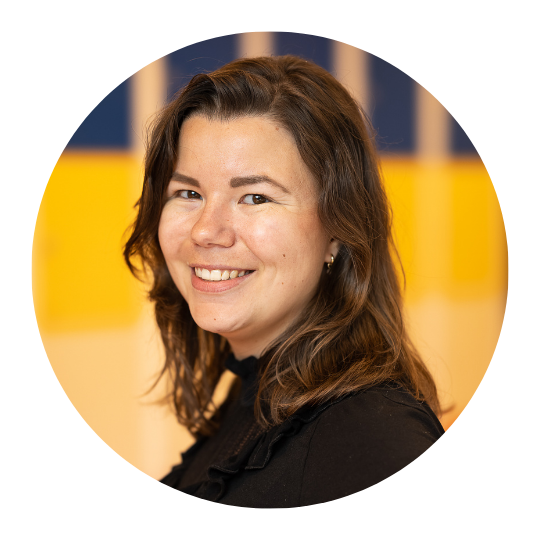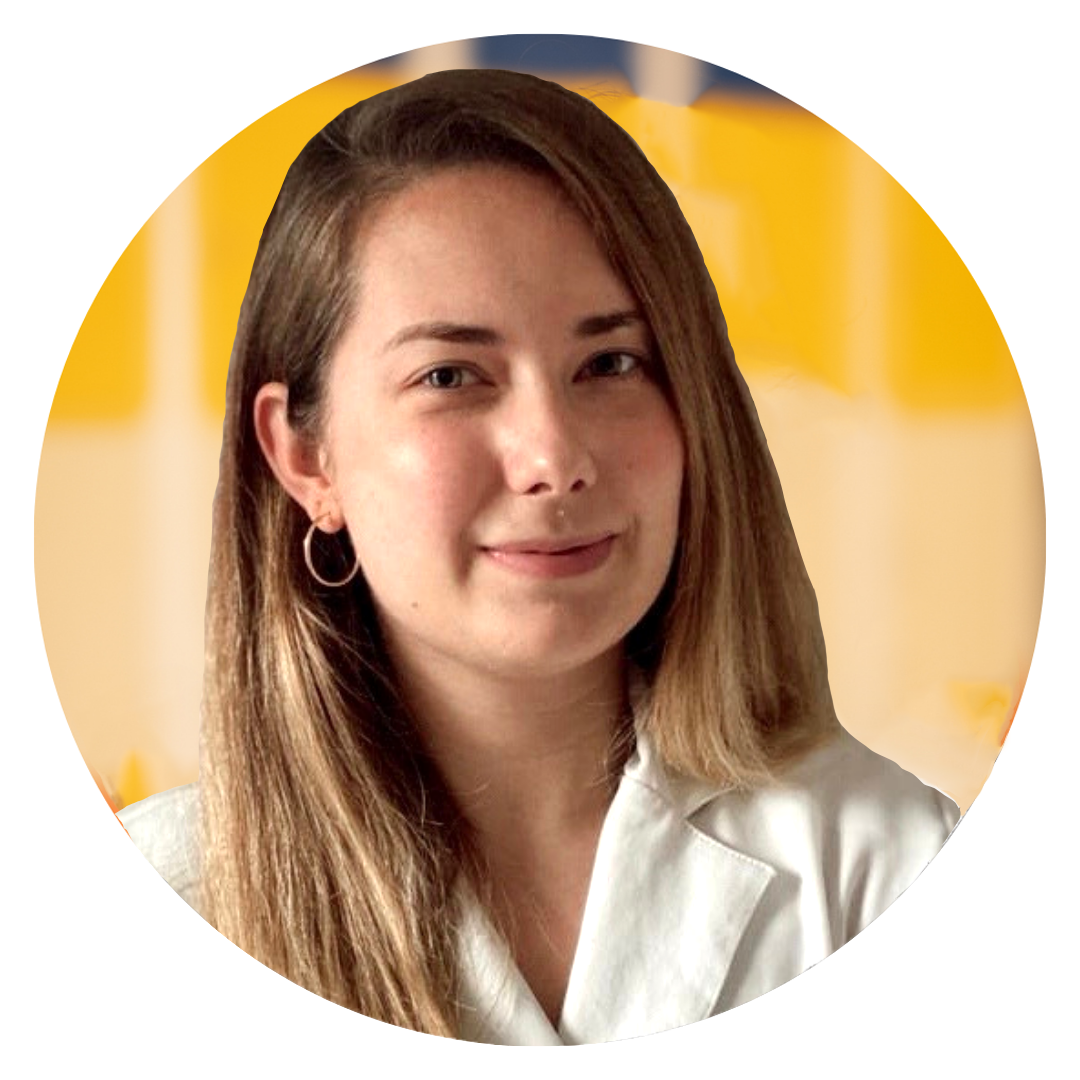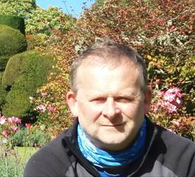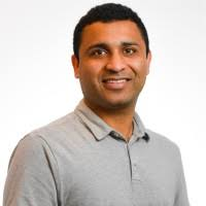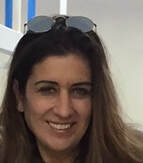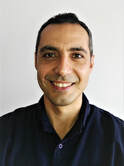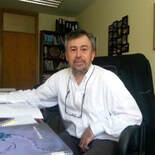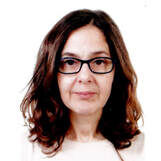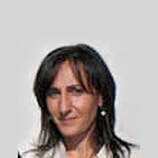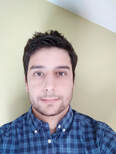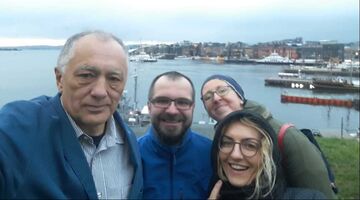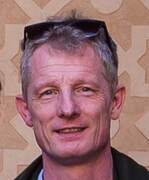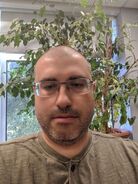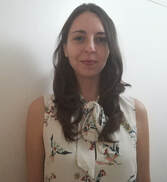ACADEMIC PARTNERS

The Norwegian University of Life Sciences (NMBU) located in Ås, Norway, seeks to contribute to the well-being of the planet through interdisciplinary research generating innovations in food, health, environmental protection, climate and sustainable use of natural resources. The Genome Biology research group (also known as the Centre for Integrative Genetics; CIGENE) is organised within the Department of Animal and Aquacultural Sciences, Faculty for BioSciences. CIGENE is a multidisciplinary genome biology research group possessing expertise in genetics, evolutionary and comparative genomics, bioinformatics and systems biology. We have a strong aqua- and agri- research profile with key strengths in the application of ‘omics’ data to understand the genetic architecture of complex traits and possess excellent wet and dry lab facilities for automated high-throughput omics, and bioinformatics.
Main tasks in the project: NMBU is the Coordinator of the AQUA-FAANG project, and is responsible for the scientific and administrative management. In addition, NMBU leads WP1 Functional annotation assays and co-lead WP7 Dissemination, exploitation and communication. NMBU is also contributing to WP2 and WP6.
Key personnel:
Main tasks in the project: NMBU is the Coordinator of the AQUA-FAANG project, and is responsible for the scientific and administrative management. In addition, NMBU leads WP1 Functional annotation assays and co-lead WP7 Dissemination, exploitation and communication. NMBU is also contributing to WP2 and WP6.
Key personnel:

The University of Edinburgh (UEDIN) is consistently ranked in the top 20 among the world’s universities, and was rated 4th overall for ‘research power’ in the most recent Research Excellence Framework in the UK (‘REF2014’). Embedded within The Royal (Dick) School, The Roslin Institute (RI) aims to enhance the lives of animals and humans through world class research in animal biology. The Roslin Institute is the UK’s leading centre for farm animal genetics and genomics, with a growing team focussed on genetics and health of major aquaculture species. Our research programme involves developing and applying genomic resources to advance selective breeding, enhance disease resistance, improve animal welfare, and reduce environmental impacts in aquaculture. Much of this research is in collaboration with a range of external academic and industry partners.
Main tasks in the project: The University of Edinburgh leads two work packages in AQUA-FAANG, one exploiting functional annotation to improve breeding for disease resistance (WP5) and the other using comparative approaches to enhance functional annotation (WP6). We also have key deliverables within other work packages, for example coordinating the delivery of developmental maps within WP 1, and dissemination and communication activities within WP7.
Key personnel:
Main tasks in the project: The University of Edinburgh leads two work packages in AQUA-FAANG, one exploiting functional annotation to improve breeding for disease resistance (WP5) and the other using comparative approaches to enhance functional annotation (WP6). We also have key deliverables within other work packages, for example coordinating the delivery of developmental maps within WP 1, and dissemination and communication activities within WP7.
Key personnel:

The European Molecular Biology Laboratory (EMBL) is one of the world’s leading research institutions, and Europe’s flagship laboratory for the life sciences. EMBL's European Bioinformatics Institute (EMBL EBI) has been leading computational biology research since its inception in 1994, with work spanning fundamental methods in sequence analysis, multidimensional statistical analysis and data-driven biological discovery. EMBL EBI manages a unique set of key biomolecular databases, including Ensembl, UniProt (the Universal Protein Resource), the European Nucleotide Archive (ENA), ArrayExpress (microarray-based gene-expression data) and InterPro (protein families, domains and motifs). EMBL EBI's missions are to provide freely available data and bioinformatics services to all facets of the scientific community in ways that promote scientific progress; to contribute to the advancement of biology through basic investigator-driven research in bioinformatics; to provide advanced bioinformatics training to scientists at all levels, from PhD students to independent investigators; and to help disseminate cutting-edge technologies to industry.
Main tasks in the project: EMBL-EBI is leader of WP2 (Bioinformatics and Data Analysis) that will achieve high quality genome annotation and homology prediction for all AQUA-FAANG species, manage and coordinate AQUA-FAANG data through the FAANG Data Coordination Centre and deliver training on computational analysis of functional annotation data.
Key personnel:
Main tasks in the project: EMBL-EBI is leader of WP2 (Bioinformatics and Data Analysis) that will achieve high quality genome annotation and homology prediction for all AQUA-FAANG species, manage and coordinate AQUA-FAANG data through the FAANG Data Coordination Centre and deliver training on computational analysis of functional annotation data.
Key personnel:

Wageningen University & Research (WUR) is a collaboration between Wageningen University and the Wageningen Research foundation with as mission ‘To explore the potential of nature to improve the quality of life’. Wageningen University (WU) is part of this collaboration and an internationally leading university in The Netherlands with study programs and research in the field of Life Sciences. At Wageningen University, the Department of Animal Sciences is one of five departments. It is involved in research and education related to the health and welfare of animals and people and comprises 12 research groups, among which the Aquaculture and Fisheries group, the Animal Breeding and Genetics group and the Cell Biology and Immunology group, are involved in this proposal. WU is also a founding partner of the international FAANG consortium, and involved in the two other projects funded under the same call.
Main tasks in the project: WU is leader of WP3 (Genomic basis of immune phenotypes). WU’s main contributions to the AQUA-FAANG project are 1) fish immunology, 2) common carp and zebrafish immuno-genomics and 3) functional and comparative genomics. Apart from WP3, WU’s main contributions will be in WP6 (Comparative Genomics).
Key Personnel:
Main tasks in the project: WU is leader of WP3 (Genomic basis of immune phenotypes). WU’s main contributions to the AQUA-FAANG project are 1) fish immunology, 2) common carp and zebrafish immuno-genomics and 3) functional and comparative genomics. Apart from WP3, WU’s main contributions will be in WP6 (Comparative Genomics).
Key Personnel:
|
Prof. Geert Wiegertjes
Head of the Aquaculture and Fisheries group at the Department of Animal Sciences and WP3 leader. |
Hendrik-Jan Megens
Assistant Professor at the Animal Breeding and Genomics (Dept. Animal Sciences) at Wageningen University. |
Annemiek Blasweiler
PhD student. In AQUA-FAANG project, she will apply bioinformatics in a comparative framework to study immune genes in Teleost Fish. |
Jules Petit
Postdoctoral researcher at the Aquaculture and Fisheries Group at the Wageningen University. |
Maria Forlenza
Associate Professor at the Cell Biology and Immunology group (Dept. Animal Sciences), heading the fish-focused research on immunology. |

French National Institute for Agricultural Research (INRAE) is the leading agricultural research institute in Europe and the second largest institute for agricultural sciences in the world. Within the AQUA-FAANG project INRA will gather 3 INRAE laboratories with their own expertise (Fish evolution & genomics, Fish infection & Immunity, Fish genetics) that will work in concert on this project. Research at the INRAE Fish Physiology and Genomics (LPGP) laboratory is aiming at investigating fish biology in the perspective of supporting a more sustainable aquaculture. LPGP laboratory is a fully operational research unit with all infrastructure and instrumentation for molecular genetics, bioinformatics research and fish research with large indoors fish facilities. The team Fish Infection and Immunity (Molecular Virology and Immunology laboratory, Animal Health division) has a long term interest in genomics of host/pathogens interactions, and in mechanisms of genetic basis of resistance to infectious diseases.

EFFAB is the main representative organisation for the animal breeding and reproduction industry, representing the European breeders. It also holds the secretariat office of FABRE-TP. The major European breeding organisations are a member of EFFAB (ruminants, pigs, poultry, and aquaculture – ranging from small cooperatives to international organisations). The EFFAB network encompass a unique stakeholder network, including around 4,000 contacts ranging from industry experts, scientists, policy makers, politicians to NGOs. EFFAB has been the initiator and coordinator of a range of socio-economic and research directive activities, e.g. socio-economic aspects in animal breeding and animal health genomics, definition of sustainable breeding in a broad society exercise, development and implementation of code of good practice (Code EFABAR) to ensure sustainable breeding programmes but also dissemination of knowledge by linking industry and research, to overcome upcoming challenges in the animal sector.
Main tasks in the project: EFFAB is in general responsible of stakeholder engagement and communication, dissemination, knowledge exchange activities and tasks in AQUA-FAANG proposal. More precisely EFFAB will lead the Exploitation Working Group and its meetings, coordinate and organise profile raising and training events for industry, create the project identity and develop a website, manage the social media and produce innovative and traditional promotional materials.
Key Personnel:
Main tasks in the project: EFFAB is in general responsible of stakeholder engagement and communication, dissemination, knowledge exchange activities and tasks in AQUA-FAANG proposal. More precisely EFFAB will lead the Exploitation Working Group and its meetings, coordinate and organise profile raising and training events for industry, create the project identity and develop a website, manage the social media and produce innovative and traditional promotional materials.
Key Personnel:

The University Court of the University of Aberdeen (UNIABDN) has been involved in European projects since Framework 3 and has, to date, been successful in participating in more than 750 grants funded by the European Commission. The university has invested in the “International Centre for Aquaculture Research and Development” in recognition of the research activity in this area. The School of Biological Sciences (SBS) has fully refurbished its aquarium facilities that include contained disease challenge facilities for fresh and saltwater fish species. The Centre for Genome Enabled Biology and Medicine was established to assist researchers in deep sequencing and also for bioinformatics support. The Scottish Fish Immunology Research Centre, within SBS, is a world rebound research group carrying out basic fish immunology and carries out research on the genomic basis of fish responses to pathogens and vaccines.
Main tasks in the project: UABDN are co leaders for WP3 (Genomic basis of immune phenotypes), with a focus on Atlantic salmon using both invivo and invitro approaches to define proinflammatory and antiviral effects on genome architecture. We will generate RNA-seq, ATAC-seq and ChIP-seq libraries.
Key Personnel:
Main tasks in the project: UABDN are co leaders for WP3 (Genomic basis of immune phenotypes), with a focus on Atlantic salmon using both invivo and invitro approaches to define proinflammatory and antiviral effects on genome architecture. We will generate RNA-seq, ATAC-seq and ChIP-seq libraries.
Key Personnel:

The University of Padova (UNIPD) is one of the oldest universities in Europe being founded in 1222. The multidisciplinary research group involved in AQUAFAANG is based at the department of Comparative Biomedicine and Food Science (BCA), which is part of the School of Agriculture and Veterinary Medicine. BCA has more than 20 faculty staff have been directly involved in fish physiology, fish and shellfish genomics, sea food quality, fish pathology, and quantitative genetics for more than 20 years. The main species of interest are the gilthead sea bream and the European sea bass. BCA has active and continued collaborations with different actors in the aquaculture and seafood industry and its faculty staff supervise selective breeding programmes for sea bass, sea bream, clam, oyster (from artificial reproduction to genomic selection). BCA has also excellent competence and infrastructures in genomics and bioinformatics with five technicians dedicated to genomics and bioinformatics.

The Hellenic Centre for Marine Research was established in 2003. The Institute of Marine Biology, Biotechnology and Aquaculture (IMBBC) is one of the three institutes of HCMR, which is the leading centre for marine research in Greece. It is based on the premises of HCMR in Crete (Thalassokosmos). IMBBC comprises three main research directions i) Aquaculture ii) Genetics/Genomics and Biotechnology as well as iii) Biodiversity.
Main tasks in the project: IMBBC will be involved in WP 1,2,3,5 and 6. The main tasks involve the experimental set ups for the two marine species the European seabass and the Gilthead sea bream as well as their analysis at the molecular level. IMBBC will also be involved in the comparative genomics investigations to support annotation and to study putative important evolutionary event.
Key personnel:
Main tasks in the project: IMBBC will be involved in WP 1,2,3,5 and 6. The main tasks involve the experimental set ups for the two marine species the European seabass and the Gilthead sea bream as well as their analysis at the molecular level. IMBBC will also be involved in the comparative genomics investigations to support annotation and to study putative important evolutionary event.
Key personnel:

The University of Santiago de Compostela (USC) includes Research and Technology Development which involves more than 250 research teams, offering high quality scientific production in 6 strategic multidisciplinary areas, including Primary Resources and Production. The ACUIGEN group of the Zoology, Genetics and Physical Anthropology Department and pertaining to the USC Aquaculture Institute, has been recognized as a Competitive Investigation Group in the Galician University system since 2006. Since 1987, ACUIGEN is a leading groupon the applications of genetics and genomics for improving aquaculture production and for conservation of biological resources. Technological Transfer is among the main goals of ACUIGEN, which has promoted the foundation of the GENEAQUA SL spin-off.
Main tasks in the project: USC is the responsible for turbot work within the AQUA-FAANG project. Its activities are distributed among most WPs involving specialized personnel related to wet-lab methodologies (WP1), bioinformatics (WP2), immunology (WP3), validation and transference of genomic tools to industry (WP4) and comparative genomics (WP6).
Key personnel:
Main tasks in the project: USC is the responsible for turbot work within the AQUA-FAANG project. Its activities are distributed among most WPs involving specialized personnel related to wet-lab methodologies (WP1), bioinformatics (WP2), immunology (WP3), validation and transference of genomic tools to industry (WP4) and comparative genomics (WP6).
Key personnel:
|
Prof. Paulino Martínez
Head of Acuigen group at the Department of Zoology, Genetics and Physical Anthropology |
Dr. Carmen Bouza
Associate Professor of Genetics. Member of Acuigen group |
Dr.Belén Gómez
Assistant Professor of Genetics. Member of Acuigen group |
Dr. Juan Rubiolo
Postodoctoral Researcher. Member of Acuigen group |
Oscar Aramburu
PhD Student Member of Acuigen group |

Zaklad Ichtiobiologii i Gospodarki Rybackiej - ZIGRPAN (Institute of Ichthyobiology and Aquaculture) is a research institution of the Polish Academy of Sciences. The main directions of research include the study of the biological basis of fish breeding, improvement of methods of fish farming in ponds and under controlled conditions, and optimization of link between fish farming and water management. ZIGRPAN has a live gene bank of 19 Polish and foreign carp strains. This allows for investigations into genetic aspects of carp selection, improving productive traits and resistance against pathogens. Carp resistance to diseases and genetic control of the immune mechanisms in fish are the main fields of ZIGRPAN’s research activity.
Main tasks in the project: ZIGRPAN’s main contribution to the AQUA-FAANG project is participation in WP1 and WP4. In WP1 ZIGRPAN will participate in works required to deliver the raw functional annotation data for BodyMaps. In WP4, we will focus on KHV (CyHV-3) problem through the functional annotation of disease resistance QTL to develop functionally-enriched low-density marker panels to improve genomic selection and its affordability in common carp.
Key personnel:
Main tasks in the project: ZIGRPAN’s main contribution to the AQUA-FAANG project is participation in WP1 and WP4. In WP1 ZIGRPAN will participate in works required to deliver the raw functional annotation data for BodyMaps. In WP4, we will focus on KHV (CyHV-3) problem through the functional annotation of disease resistance QTL to develop functionally-enriched low-density marker panels to improve genomic selection and its affordability in common carp.
Key personnel:

The University of Barcelona (UB) develops all its activities related to the research in Europe through its International Research Projects Office, a unit in charge of the promotion of EC programs, technical assistance to the elaboration of proposals and management of projects with participation of researchers of the UB. The Cell Biology, Physiology and Immunology department is a leading group on the study of fish physiology specially focus on metabolism and energetics, digestion, growth dynamics and the molecular networks controlling growth. The group have done significant contributions to the understanding of the molecular basis of growth and development of the musculoskeletal system. The group has also a very strong background on the effects of hormones and exercise on growth and food conversion. Similarly, it has developed unique in vitro tools to better understand the molecular physiology behind growth such as primary cell cultures of myoblast, osteoblasts and adipocytes. The group routinely work with both salmonids (rainbow trout) and Mediterranean species (gilthead sea bream and European sea bass) combining both classical physiological approaches with advance molecular techniques (including transcriptomics and proteomics).

The University of Birmingham is one of the leading research-based universities in the United Kingdom; the breadth of research expertise is a distinctive characteristic of the University. UK Research Excellence Framework in 2014 confirmed that 87% of the University’s research has global reach, meaning it is recognised internationally in terms of its originality, significance and rigour. The Institute of Cancer and Genomic Sciences in the College of Medical and Dental Sciences hosts the laboratory of Ferenc Mueller (FM) and provides outstanding environment for genomics and epigenetics research. The UoB has excellent support for genomics via the Birmingham Centre for Computational Biology. FM is the coordinator of the international consortium DANIO-CODE of approx. 30 laboratories worldwide, which aims to annotate the functional elements of the model vertebrate zebrafish.
Main tasks in the project: Advisory role on behalf of DANIO-CODE, an International consortium for the annotation of functional elements in the zebrafish genome, sample collection and ChIP and ATAC seq library preparation from embryos of carp and cyprinids and training of partners in library preparation in embryos.
Key personnel:
Main tasks in the project: Advisory role on behalf of DANIO-CODE, an International consortium for the annotation of functional elements in the zebrafish genome, sample collection and ChIP and ATAC seq library preparation from embryos of carp and cyprinids and training of partners in library preparation in embryos.
Key personnel:

Imperial College is a research university with three faculties and four academic units outside the faculty structure. In AQUA-FAANG, the Lenhard group shall participate through Imperial College’s Faculty of Medicine, Institute of Clinical Medicine. The group is located within and affiliated with MRC London Institute of Medical Sciences (MRC LMS). LMS was established in 1994 by the Medical Research Council (MRC) to provide a focus of strength in basic science in a clinical environment. Its primary mission is high quality basic research underpinning our understanding of human disease, taking advantage of the environment at Imperial College and at the Imperial College Healthcare NHS Trust to facilitate the translation of this understanding into improved diagnosis and treatment.
INDUSTRY PARTNERS

Xelect Ltd. (Xelect) is a private limited company registered in Scotland which provides specialist genetics and breeding management services to the aquaculture industry worldwide. The company has full responsibility for managing breeding programmes for multiple species in Australia, Chile, Croatia, Greece, New Zealand, Vietnam and the United Kingdom, including for 4 of the 6 target species in the AQUA-FAANG proposal. It has fully-serviced and well equipped laboratories and a strong research and development capacity allowing it to develop the genetic tools required to initiate selective breeding in species that are new or recent to aquaculture.

AquaGen is an international producer of eggs for the aquaculture industries. The company runs breeding programs for Atlantic salmon, rainbow trout, coho salmon, and lumpfish. Via sister companies, AquaGen is also involved in tilapia breeding. AquaGen’s breeding programmes for Atlantic salmon and rainbow trout, established by researchers from NMBU/Nofima (Norway) in the early 1970’s, were arguably the first large-scale and science-based breeding programmes in aquaculture. AquaGen have been pioneers in the application of molecular tools to fish breeding. The company identified a major QTL for IPN resistance and have applied it in markerassisted selection (MAS) for IPN resistance since 2007, leading to an 80% reduction of IPN outbreaks within the Norwegian industry. Currently, the company routinely applies MAS for a range of traits in salmon, including resistance to IPN, PD, CMS, HSMI, SRS, fillet colour, growth rate, fillet colour in salmon, and resistance to IPN and flavobacterium in rainbow trout. Genomic selection was implemented first time in 2013, and is currently applied to a range of traits, including resistance to sea lice and AGD. AquaGen has contributed significantly to the development of tools for the research community.

Valle Ca’ Zuliani Società Agricola (VCZSA) is an important Italian fish farming company. It has two fish farming sites, both ISO 22000:2005 Certified, one in the Po Delta (Porto Tolle, Rovigo, Italy) producing sea bass fry and traditional valley products (sea bass, sea bream and eel) and one in Monfalcone (Gorizia, Italy) producing seabream fry and commercial–size fish for great market. Annual mean production of fingerlings from 2012 to 2016 has been of 20,000,000/year for a value of 4,300,000 euro per year but recently the production has decreased for the sea bass, due to sanitary problems. This has prompted VCZSA to include disease-resistance as a trait in its selective breeding programme.

OVAPISCIS S.A. is a company dedicated to the production and commercialization of embryonic eggs of rainbow trout, both diploid and triploid roe. The company is producing more than 250 million eggs/year which are sold to eight different countries. A breeding program is carried out in an installation with sanitary guarantee using loads and methods similar to those used in intensive production. An individual selection at the time of spawning is performed to maintain genetic variability, avoid inbreeding and obtain the best results.

Stolt Sea Farm is a multinational fish farm company, producing Turbot (Scophtalmus maximus ) in Spain, Portugal and Norway, Sole (Solea senegalensis) in Spain, France and Iceland, and Sturgeon (Acipenser trasmontanus) in California. The flat fish division produces and commercializes more than 7000 tonnes per year of sole and turbot, and the sturgeon division produces more than 10 tons of caviar per year. The company owns the trade mark PRODEMAR.

Culmarex is an expert Spanish aquaculture group which has occupied a leader position in both the national sea bass and sea bream markets for over 25 years. Culmarex’ mother company, CookeAqua Inc., is a family-owned multinational seafood giant. Its core businesses are both aquaculture and fisheries. The aquaculture division is dominated by the production of Atlantic salmon in Canada, the US, Chile and Scotland while he fisheries activities (finfish and shellfish) are concentrated in the US and Uruguay. Culmarex group headquarters are located in Águilas (Murcia) where, historically, the first marine farm of the company was set up. The facilities in Águilas also include the slaughter line, the packaging area, an ice plant and a nets station. Culmarex Group is fully integrated and possesses a hatchery-nursery facility, Aquicultura Balear, S.A.U., in Mallorca. The hatchery-nursery plant produces more than 45 million fingerlings per year from a selected bass/bream broodstock population.

Geneaqua – “Genetic Technology for Aquaculture”, is a technology-based company (EBT). Geneaqua focuses its activity on providing genetic services to aquaculture companies, facilitating the enhancement of their production in a profitable and sustainable manner, based on the application of molecular genetic technology and related fields.

Panittica Italia Società Agricola (PISA) is an important Italian fish breeding company. PISA is specialized in sea bream and sea bass breeding and fry production. It has a yearly production of 20 millions sea bream fry and 10 millions sea bass juveniles. It has recently started a family-based selective breeding programme under the supervision of UNIPD.

SYSAAF is the French association of poultry and aquaculture breeding companies. SYSAAF acts as a technical centre specialised in genetic improvement and advices over 42 breeding companies developing breeding programs of more than 22 poultry and aquaculture species. SYSAAF expertise and know-how are in the development and application of genetic database system to collect phenotypes and pedigree in aquaculture species, to estimate genetic and genomic breeding values and to propose index of selection and candidates to increase performances in managing inbreeding. Recent advances are in the development of LD genomic arrays (57 K SNP) in seabass and sea bream and application of genomic selection in rainbow trout, sea bass and sea bream to improve production or processing traits, flesh quality (colour, lipids and w3 composition), disease resistance and reproductive traits. SYSAAF also coordinates a new EMFF project to estimate genetic parameters of w3 composition in rainbow trout in using Rama spectroscopy technology.

NIREUS is aiming at creating hatcheries and on-growing fish farming units, processing fishery, producing fish feeds and marketing them. Through investments and acquisitions, it evolved into a powerful Group, the biggest producer of sea bream and sea bass worldwide, exporting its products to more than 40 countries. NIREUS operates fully integrated, owning hatcheries, on-growing farms, two fish feed plants, fishery-processing units and fish farming equipment services, in Greece and Spain. It has established and operated Research and Development departments. The R&D department ensures the promotion of applied and technological research in such areas as: a) the production and supply of new fish through the development of new production methods and the creation of know-how, b) the creation and operation of land and floating experimental fish farming facilities, c) the development and integration in production of new Value Added Products, d) the creation and development of production control methods and e) the application of quality certification systems.




